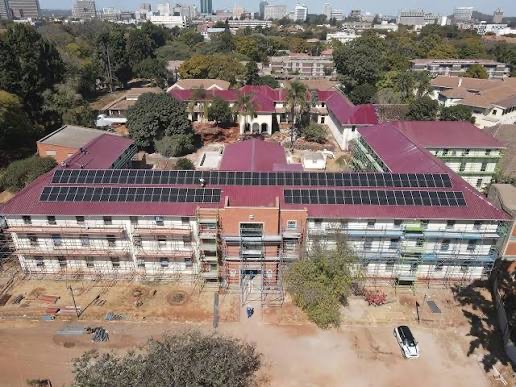Harare – Russia has reaffirmed its commitment to narrowing the global digital divide.
It also pledged support for a multipolar, transparent, and cooperative approach to information security.
This was highlighted by Chargé d’Affaires a.i. of the Russian Federation, Mr. Sergey Kuzin, during a press briefing in Harare.
He was speaking at the launch of the first phase of a national cybersecurity training programme designed to boost Zimbabwe’s digital capacity.
“We believe that equitable access and mastery of digital technologies are fundamental to global stability and progress.
“In 2023 at the Second Russia-Africa summit in St. Petersburg, Russia and Zimbabwe signed an intergovernmental agreement on cooperation in the sphere of international information security.
“Therefore we are proud to support the creation of a new project that will strive to transform the digital landscape of Zimbabwe,” Mr. Kuzin said.
He said the initiative is a direct result of commitments made two years ago. It reflects Russia’s aim to use digital tools for peace and development.
“Our joint statement clearly demonstrates a shared dedication to fostering a secure and collaborative digital environment.
In this rapidly evolving digital era, the empowerment of youth through comprehensive training is not merely an option, but a strategic imperative,” he added.
Zimbabwe and Russia enjoy historic ties dating back to the liberation struggle. During that time, Zimbabwean fighters received military training in Russia.
Today, those relations have expanded into digital development and cybersecurity cooperation.
Information communication technologies minister Tatenda Mavetera called the launch a milestone in Zimbabwe’s digital journey.
“Zimbabwe’s commitment to digital transformation is guided by the Zimbabwe National ICT Policy, as approved by Cabinet under the leadership of His Excellency, the President of the Republic of Zimbabwe, Cde. Dr. E.D. Mnangagwa.
“This policy rightly states that the successful development of ICTs must be underpinned by digital skills, safety in cyberspace, and data protection,” she said.
She applauded the partnership with the Cyberus Foundation.
The foundation was formed by global cybersecurity leaders Yury Maksimov and SK Capital.
It works with partners like Positive Technologies, KOMIB, CyberED, and Innostage.
She noted that a 2024 visit by Cyberus and KOMIB officials to Zimbabwe laid the foundation for the National Cybersecurity Framework.
The first phase dubbed Building National Cybersecurity Capacity and Capability, will train over 10,000 young Zimbabweans.
Courses will cover ethical hacking, real-world cyberattack simulations, and basic cybersecurity.
Training will be delivered through a world-class platform developed by CyberED.
Local implementation will be handled by RedZone Digital Zimbabwe.
To expand the impact regionally, Cyberus is offering 160 scholarships.
Ten students will be selected from each SADC member state. The goal is to make Zimbabwe a regional centre for cybersecurity education.
“This initiative is not only a skills development programme, but a national investment in digital resilience, youth empowerment, and economic growth.
If Zimbabwe captures just 0.1% of the global cybersecurity market, currently valued at US$200 billion annually, we could earn over US$200 million per year from cybersecurity services alone,” she said.



